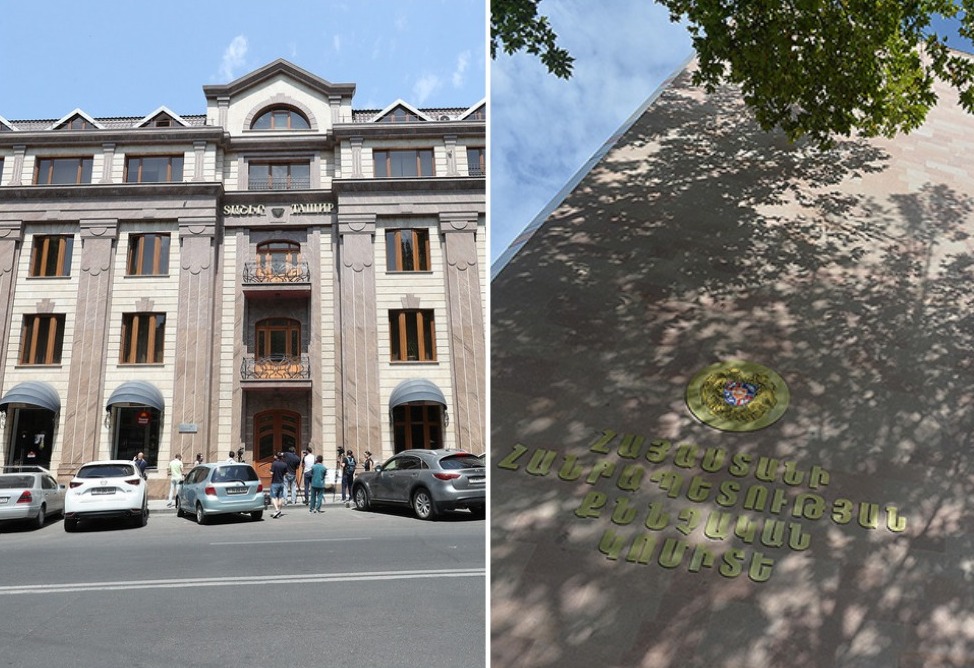Armenia and Azerbaijan agree to continue talks over Karabakh on foreign ministers level
26.11.2012,
20:08
International peace brokers from the OSCE Minsk Group said after a trip to the region that Armenia and Azerbaijan agreed to continue talks on Nagorno-Karabakh conflict on the level of foreign ministers.

YEREVAN, November 26. / ARKA /. International peace brokers from the OSCE Minsk Group said after a trip to the region that Armenia and Azerbaijan agreed to continue talks on Nagorno-Karabakh conflict on the level of foreign ministers.
"The Co-Chairs of the OSCE Minsk Group (Ambassadors Robert Bradtke of the United States of America, Igor Popov of the Russian Federation, and Jacques Faure of France) and the Personal Representative of the OSCE Chairperson-in-Office, Ambassador Andrzej Kasprzyk, traveled to the region November 19 to 26 to continue their efforts to assist the parties in finding a peaceful solution to the Nagorno-Karabakh conflict,’ they said in a statement.
In Yerevan, the Co-Chairs met on November 23 with President Sargsyan and Foreign Minister Nalbandian, and in Baku, on November 26, they met with President Aliyev and Foreign Minister Mammadyarov. In Nagorno-Karabakh on November 21-22 they met with de facto authorities. In traveling to Nagorno-Karabakh on November 21, the Co-Chairs visited Zangilan and Jabrail regions to assess developments in those territories since their last visit in October 2010.
The Co-Chairs reviewed with Presidents Sargsyan and Aliyev the results of the separate meetings they held with Foreign Ministers Nalbandian and Mammadyarov in August and September, and discussed the ideas on the continuation of the peace process that they had presented to the Ministers in their joint meeting on October 27. The sides agreed to carry out further work on the level of the Foreign Ministers.
The Co-Chairs expressed appreciation to Ambassador Kasprzyk and his team for their work in monitoring the ceasefire during this difficult period and for facilitating this trip to the region, particularly the travel to Zangilan and Jabrail regions.
Contacts between Baku and Yerevan in the framework of the international efforts to settle the Nagorno-Karabakh conflict soured after Hungary extradited an Azerbaijani Lieutenant Ramil Safarov, who was sentenced to life in prison for in 2004 in Budapest his Armenian peer Gurgen Margaryan. Back in home Safarov was amnestied by Azeri president and promoted in the rank.
The conflict in Nagorno-Karabakh broke out in 1988 after the predominantly Armenian-populated enclave declared about secession from Azerbaijan as Azerbaijan declared its independence from the Soviet Union and removed the powers held by the enclave's government, the Armenian majority voted in 1991, December 10, to secede from Azerbaijan and in the process proclaimed the enclave the Republic of Nagorno-Karabakh. Full-scale fighting, initiated by Azerbaijan, erupted in the late winter of 1992.
International mediation by several groups including Europe's OSCE’s failed to bring an end resolution that both sides could work with. In the spring of 1993, Armenian forces captured regions outside the enclave itself. By the end of the war in 1994, the Armenians were in full control of most of the enclave and also held and currently control seven regions beyond the administrative borders of Nagorno-Karabakh. Almost 1 million people on both sides have been displaced as a result of the conflict. A Russian- -brokered ceasefire was signed in May 1994 and peace talks, mediated by the OSCE Minsk Group, have been held ever since by Armenia and Azerbaijan. -0-



